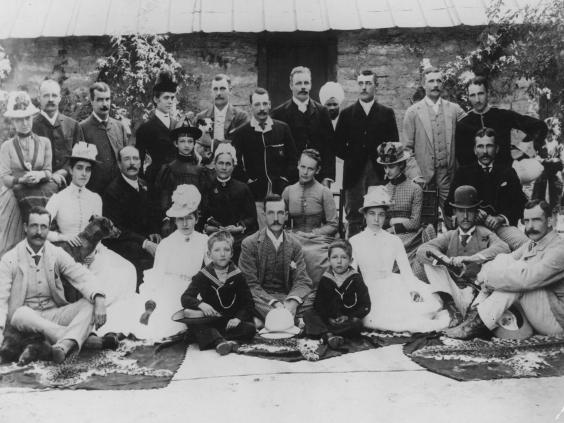Have
you ever wonder what's behind language? Surely it is no inocuous,
inoffensive tool, but language can hide the whole ideology that holds
a system. As English teachers we must be aware of it. English is
nowadays a Lingua Franca, a global language, a means to communicate
with people from many different parts of the world. But we mustn't
forget that it was once and it still is an imperial language. During
the 19th and beginning of the 20th century, Great Britain had many
colonies, it was an Empire. One of these colonies was India, where
the British first arrived with the East India Company:
The
brits didn't just exploit different territories and extract their
goods, but with their arrival they also brought their language.
India was one of its most important sources of wealth. At the turn of
the 19th century, the British, overconfident with the Industrial
Revolution, began to think that they needed to change India: values,
superstitions... During the second half of the 18th century the
English get involved in Indian politics.
 Although
showing resistance, in the end Indians are defeated, crushed and
there is a switch in power from the East Indian Company to the
British Crown. In 1858, with the Indian Mutiny, starts the British
Raj, which is the period of British Sovereignty and it will last
until 1946 when they will achieve independence. Throughout these
years of power, the English brought not only their traditions and
values, but also their language. Such
has been its influence, that even nowadays, English is still one of
the official languages in India. Although some may argue that the
British brought many improvements and enhanced the lifestyle of the
Indian, they also exerted their power to such extent that even
nowadays it is materialised in the diglossic situation among its
languages.
Although
showing resistance, in the end Indians are defeated, crushed and
there is a switch in power from the East Indian Company to the
British Crown. In 1858, with the Indian Mutiny, starts the British
Raj, which is the period of British Sovereignty and it will last
until 1946 when they will achieve independence. Throughout these
years of power, the English brought not only their traditions and
values, but also their language. Such
has been its influence, that even nowadays, English is still one of
the official languages in India. Although some may argue that the
British brought many improvements and enhanced the lifestyle of the
Indian, they also exerted their power to such extent that even
nowadays it is materialised in the diglossic situation among its
languages. 
By
diglossia we understand a situation in which two dialects or
languages are used by a single language community, an everyday or
vernacular language variety -the "low" variety-, and a
second, highly codified variety, often considered "high",
which is used for more formal contexts. In such situation, English
still prevails as the "high" language, synonym with having
received an education and thus having economic capital. When teaching
English we must bear these aspects in mind, and teach it as global
language, but also as a powerful system of oppression.













